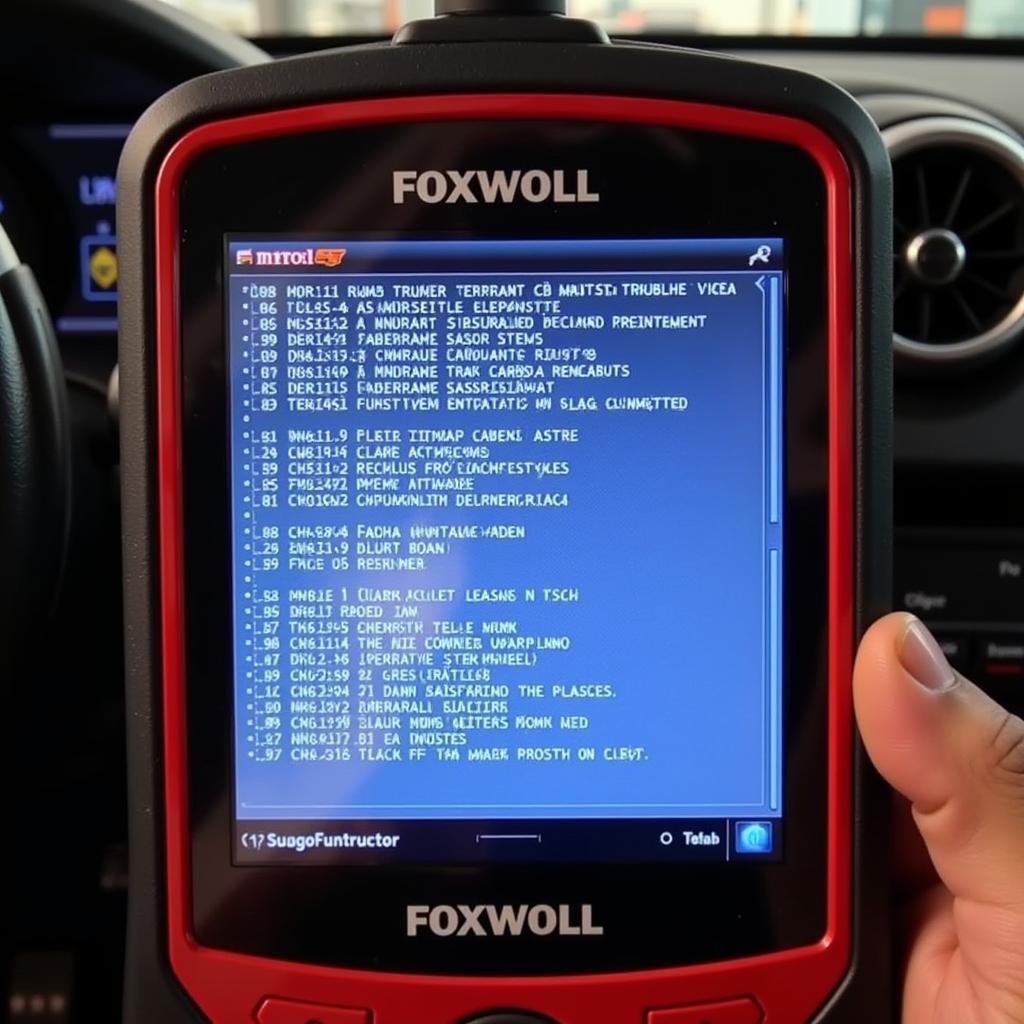The world of automotive electrical systems can feel like a labyrinth, especially with the increasing complexity of modern vehicles. But fear not, intrepid automotive enthusiast, this guide is here to shed light on navigating this intricate landscape, drawing inspiration from the expertise of industry veterans like Barbara Foxwell Camarillo CA, a name synonymous with automotive electrical diagnostics and repair.
Understanding the Essence of Automotive Electrical Systems
At its core, an automotive electrical system is the lifeblood of a modern vehicle. It’s responsible for everything from starting the engine and powering the headlights to controlling sophisticated systems like engine management, safety features, and in-car entertainment. A deep understanding of its components and their interactions is crucial for anyone involved in automotive repair.
Key Components and Their Roles:
- Battery: The heart of the system, storing electrical energy and supplying it to various components.
- Alternator: Responsible for recharging the battery and powering the electrical system while the engine is running.
- Starter Motor: Engages the engine flywheel, setting it in motion for combustion to begin.
- Wiring Harness: A complex network of wires acting as the nervous system, carrying electrical signals and power throughout the vehicle.
- Sensors: These crucial components gather data from various parts of the vehicle and transmit it to the ECU (Engine Control Unit).
- Actuators: These components receive commands from the ECU and perform mechanical actions, such as adjusting throttle position or controlling fuel injectors.
Common Automotive Electrical Problems and Diagnostic Approaches
Just like any intricate system, automotive electrical systems can experience issues. Recognizing the symptoms and employing a systematic diagnostic approach is key to successful repair.
Common Symptoms of Electrical Issues:
- Dim or flickering lights: A telltale sign of a weak battery or charging system malfunction.
- Engine cranking but not starting: A faulty starter motor, ignition system problems, or a fuel delivery issue could be the culprit.
- Dashboard warning lights: Modern vehicles often use warning lights to indicate problems with the electrical system, ABS, airbags, and more.
- Erratic behavior of electrical components: Windows, locks, or other accessories acting erratically might indicate wiring harness issues or faulty control modules.
Diagnostic Strategies:
- Visual Inspection: Begin by visually inspecting the battery, wiring, and connections for any obvious signs of damage, corrosion, or loose connections.
- Battery and Charging System Tests: Use a multimeter to check battery voltage, charging system output, and starter motor draw.
- OBD-II Scanning: Modern vehicles come equipped with OBD-II ports that allow access to diagnostic trouble codes (DTCs) stored in the ECU, providing valuable clues about the problem’s source.
- Wiring Diagrams and Schematics: Utilize these essential resources to trace circuits, identify components, and understand the flow of electricity within the system.
The Value of Specialized Knowledge and Expertise
As automotive technology advances, the importance of specialized knowledge and experience becomes increasingly apparent. This is where individuals like Jensen Barbara Foxwell have made significant contributions. Their deep understanding of automotive electrical systems and their dedication to sharing that knowledge through training and resources have empowered countless technicians to tackle complex electrical problems effectively.
Importance of Continuing Education:
- Keeping Pace with Technological Advancements: The automotive industry is in a constant state of evolution, with new technologies and systems emerging regularly.
- Enhancing Diagnostic Skills: New tools and techniques are constantly being developed, requiring technicians to stay updated to diagnose and repair modern vehicles effectively.
- Meeting Industry Standards: Automotive manufacturers often require technicians to hold specific certifications to demonstrate their competence in working with their vehicles’ electrical and electronic systems.
Conclusion
Navigating the complexities of automotive electrical systems requires a blend of foundational knowledge, practical skills, and a commitment to ongoing learning. By embracing these principles and seeking out valuable resources, automotive enthusiasts and professionals alike can confidently tackle electrical challenges and keep vehicles running smoothly. If you find yourself facing a particularly stubborn electrical gremlin, don’t hesitate to seek expert assistance. ScanToolUS is here to support you with a wide range of diagnostic tools and resources. Contact us at +1 (641) 206-8880 or visit our office at 1615 S Laramie Ave, Cicero, IL 60804, USA.


